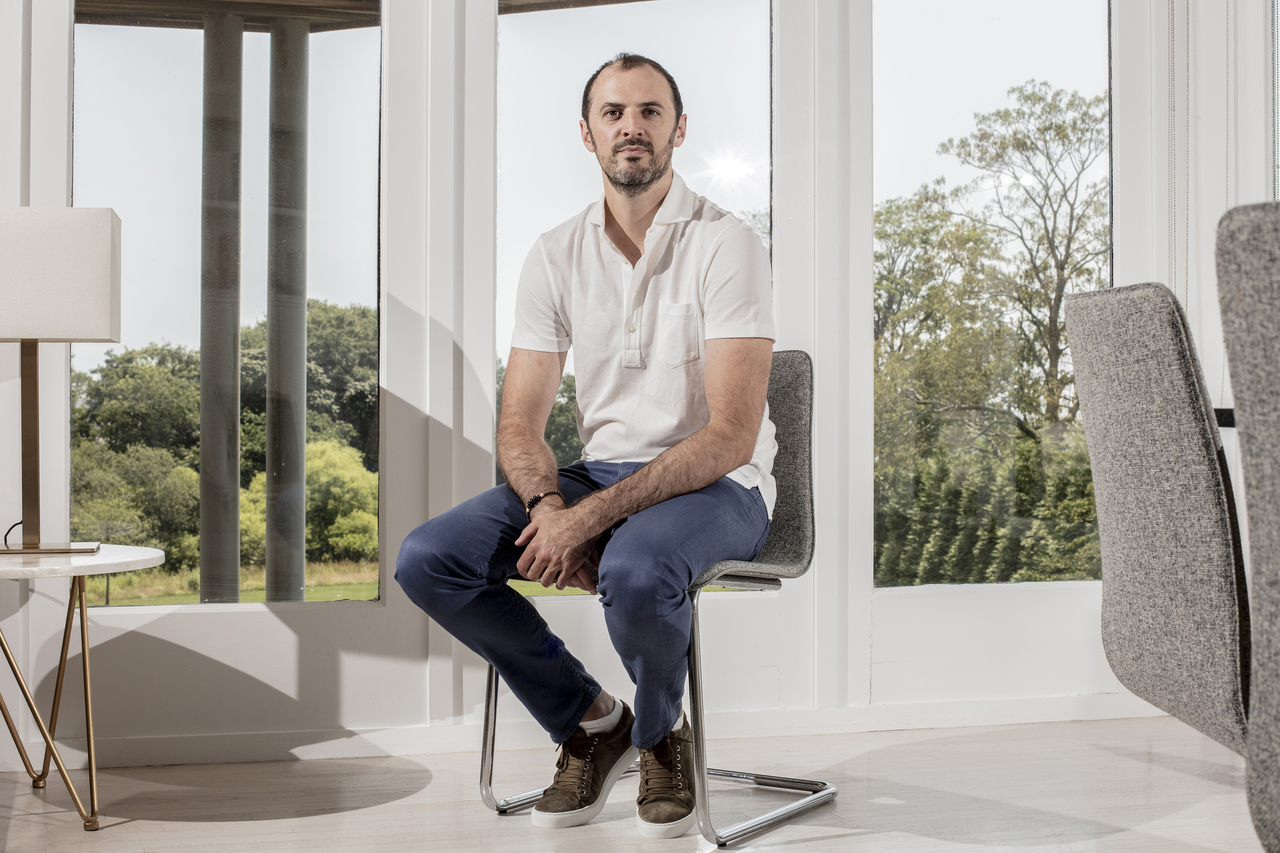Stock vigilante wins by exposing company frauds
Sign up now: Get ST's newsletters delivered to your inbox

Mr Nathan Anderson has emerged as the newest face of a small club of investors called activist short sellers.
PHOTO: NYTIMES
Follow topic:
(NYTIMES) - The US federal authorities recently charged the founder of the electric vehicle manufacturer Nikola, which had gone public in June last year, with defrauding investors. They were led there partly by the work of a little-known Wall Streeter Nathan Anderson.
A stock researcher and investor, Mr Anderson and his upstart firm, Hindenburg Research, are having a moment. Earlier this month, the Securities and Exchange Commission (SEC) subpoenaed the sports betting firm DraftKings after Hindenburg said in a June report that it had potentially enabled black-market betting.
And shares of Lordstown Motors have fallen nearly 70 per cent since Hindenburg said in March that the electric truck-maker was hyping commercial interest for its vehicle. The federal authorities are investigating Lordstown's claims.
The five-person firm, which takes its name from the German airship that blew up in 1937, is a newbie in the world of finance. Founded in 2017, Hindenburg specialises in publishing detailed reports about publicly traded companies, poking holes in their stories and alerting investors to potential malfeasance. The boom in special purpose acquisition companies has provided Hindenburg with fertile ground.
It is not an act of public service. Hindenburg, which has the backing of several investors, also makes financial bets that the stocks of the companies Mr Anderson is targeting will fall after the firm issues its research. When the stocks do fall, Hindenburg makes its money in what is called a "short" trade.
"He's become a real giant killer," said Professor Frank Partnoy, a former derivatives trader who is now teaches securities law at the University of California's School of Law. He "seems fearless, even when going after some of the biggest corporate targets".
Mr Anderson has emerged as the newest face of a small club of investors called activist short sellers - a style of investing popularised by Mr Carson Block of Muddy Waters and Mr Andrew Left of Citron Research. Such investors are often reviled by companies for their pugilistic tactics. Ordinary investors hate them because their investments can suffer.
Short sellers see themselves as financial detectives, sniffing out corporate wrongdoing or inflated stock prices. Some, like Mr Anderson, publish critical reports on companies and then push their views widely in social and news media to drive down a stock's price.
At the same time, they build a short position in the stock, borrowing shares of a target firm from a brokerage and then selling them, expecting the stock price will fall on account of their negative research. If the stock does fall, the short seller buys the now-cheaper shares back, returns them to the broker and pockets the difference. But the strategy can be risky because the stock could instead rise.
On July 29, when the federal authorities announced they had charged Trevor Milton of Nikola with securities fraud, the company's shares plunged 15 per cent.
Mr Anderson said he felt vindicated, noting that his passion is to "find scams". He spent hours of his own time investigating potential Ponzi schemes by hedge funds, occasionally teaming up with fraud investigator Harry Markopolos, who infamously tried to warn the SEC in 2000 about wrongdoing at Bernard Madoff's firm.
Working from a WeWork office in New York, Mr Anderson focused on shorting the stocks of lesser-known companies. His lucky break came in December 2018, when he wrote a report with a hedge fund on the medical cannabis company Aphria.
Hindenburg said the company's insiders were using shell companies to "divert funds away from shareholders into their own pockets". Immediately after the report was published, Aphria shares plummeted 30 per cent.
The boom in Spac (special purpose acquisition company) deals - such companies have raised nearly US$200 billion (S$268 billion) since the beginning of last year - has provided rich material for Hindenburg to investigate. Sometimes called a "blank cheque" company, a Spac raises money from investors through a public offering and has two years to find an operating business to merge with. Many companies that go public via this route undergo far less scrutiny than they would in initial public offerings.
Last summer, two whistleblowers provided Hindenburg with a tip about Nikola, the electric truck-maker that had gone public via a US$700 million merger with a Spac called VectorIQ.
The whistleblowers, former business associates of Milton, Nikola's executive chair, claimed he was making exaggerated statements about the company. A few months later, Hindenburg published its report, calling Nikola an "intricate fraud built on dozens of lies".
According to the report, Nikola put out a promotional video to suggest it had a working prototype for its truck - without disclosing that the vehicle was moving only because it was rolling down a hill in neutral gear. Milton resigned a few weeks later, and the authorities began investigating.
Milton's lawyers have denied the charges, and the company has said it cooperated with the authorities. DraftKings, in disclosing the SEC subpoena, said it would cooperate with the investigation.
"There are just so many outrageous companies," Mr Anderson said. "Some of these companies we have looked at, they don't have any revenues at all."

